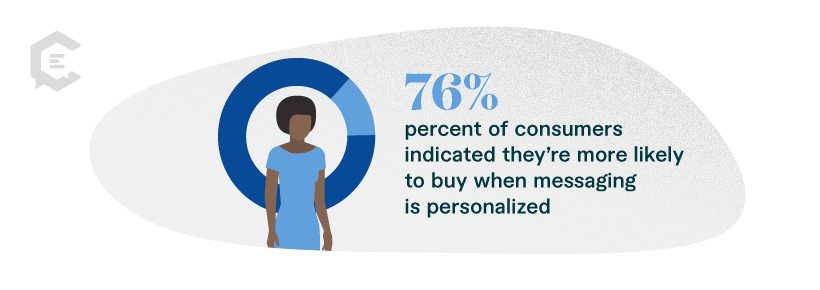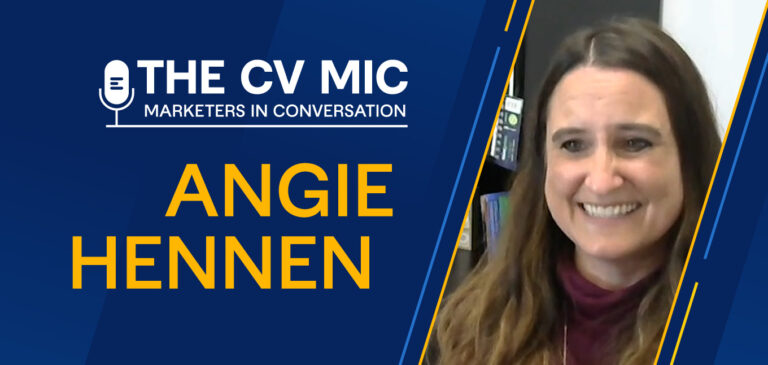The concept of “search engine optimization” was first introduced in the late 1990s.
Since then, incorporating SEO into content creation strategies has morphed from “good to have” to “absolutely essential.” But SEO these days involves more than finding the right keywords and figuring out how to incorporate them in your website, jump pages, or blogs so they don’t look too odd. Personalizing your content can help move your SEO efforts into positive territory.

SEO and the “Personal Touch”
The idea behind SEO and personalization is that whatever request or question the user plugs into a search engine returns results specific to that individual. These results might consider the following:
- Location
- Previous search history or online behavior
- User interests
- Language
Let’s put this another way. Once upon a time, whenever you plugged a request into a search engine, you got the same results as your neighbor or work colleague who might have input that request. Today, your search engine query will generate a different response than that sent to your colleague or neighbor.
This is why, for example, if you plug “ice cream” into your Google or Bing search engine, the response might be that you can find Ben & Jerry’s Chunky Monkey (one of your favorite flavors) at the local Kroger store (about two miles away).
There isn’t anything magical about this — it boils down to algorithms. The search engine relies on your information to generate those seemingly specific results. It also boils down to your intent and how Google analyzes it based on previous behaviors.
You might be getting results about Ben & Jerry’s Chunky Monkey ice cream because you might have researched it. Meanwhile, Google or Bing knows where you live because your “location-sharing” feature is switched on. From this, the search engine surmises you intend to find Chunky Monkey near you.
Content Personalization and SEO Outcomes
Moving from ice cream to strategy, personalized content strategies involve messaging based on information from your audience that creates a specific, targeted experience. Today’s online users want that personalized experience, as shown by the following:
- 76 percent of consumers indicated they’re more likely to buy when messaging is personalized
- 77 percent of consumers have selected or paid more for a brand that prioritizes a personal experience
- 73 percent of customers want companies to understand what they need
- 80 percent of consumers indicated they were more likely to make a purchase when a brand offered a personalized experience
There’s more – personalized content has a positive impact on SEO because it engages your audience. Here’s how it works:
- Your target audience uses a search engine to ask questions or solve problems.
- Based on the information you already have about your audience (behavior, location, language), your content answers that question or solves that problem in a tailored, specific manner.
- Problem-solving content — and the personalized manner in which it’s delivered — keeps your audience engaged, meaning higher dwell rates and fewer bounce numbers.
- Because personalized, specific content effectively answers questions and improves engagement, it’s rewarded with a higher search engine results page (SERP) ranking.
Incorporating Personalization into Your SEO Strategies
The connection between personalization and SEO means your content should incorporate multiple ways to hone your message – to personalize it. Here’s how to do this:
Conduct audience research
Certainly, this is a given for general content strategy. But you’re not just identifying problems to solve. You’re also analyzing other factors. You need to understand your audience’s past behavior, where they live, and what language they speak. Implementing an advanced segmentation strategy can be a game changer in this department. Leveraging customer insights for success can be another one.
You should also examine external factors, like what your competition is pedaling. Economic trends. Even the weather forecast. The goal is to understand everything you can about your audience to add to your content’s personalization.
Choose the right keywords
Again, obvious. Keywords are an essential part of any SEO strategy. But the “personalization” keywords more effectively target the message to your audience. Taking the “Chunky Monkey” example above, one example of a personalized keyword string might be “Where to find ice cream in New York City.” Or “how the occasional ice cream can benefit growing children.” These keyword strings direct your audience to content about New York City ice cream (location) or how the calcium in ice cream can help kids (parents).
Create relevant content
Any content you generate must be relevant to your audience and align with their search intent. This is especially true when incorporating personalization attributes into your efforts. Knowing your audience comes in handy here. If your users want to know more about New York ice cream, you can generate all kinds of blogs, jump pages, and banners related to that topic.
Knowing your audience also means considering other issues, like language. If you’re attempting to personalize content for an international audience, avoid Google Translate. Instead, find a bilingual content producer.
It’s also important to understand that language differs within countries. Let’s put it this way — the humble submarine sandwich is also known as a hoagie (Pennsylvania), grinder (New England), hero (New York), or Po’ Boy (New Orleans). Being clear on dialects and regional behaviors is important in content personalization.
Measure and change
Content personalization isn’t a one-and-done scenario. It requires ongoing tweaking and analysis to generate the desired results. Analytics is an integral part of this process. Keeping an eye on visits to your content is important, as are other factors like engagement, conversions, dwells, and bounce rates.
The Pitfalls of Personalization
Content personalization can be a wonderful tool to reach your audience, address its concerns, and improve your organic traffic rate. However, there are caveats connected with such a strategy. Be wary of the following:
Over-categorization
The goal is to direct your content to the right audience. Not narrow it down so that it appeals only to a niche segment. Traveling this path could alienate other members of your audience who might benefit from what you have to say). If those users don’t have content relevant to their needs, they could lose interest and go elsewhere.
Ignoring the fundamentals
Regardless of how well you personalize, remember that your content must demonstrate expertise, authority, and trust. Personalizing the information is to achieve a more specific focus, not to change the purpose. Along those lines, other SEO fundamentals — including URL structures and metadata descriptions — shouldn’t be changed.
Duplication of efforts
In your zeal to personalize, you might be tempted to rehash that existing blog or website copy and “personalize” it by changing maybe a word or two. Google tends to flag highly similar content, which could lower your SERP. Instead, change the content using different formats and language.
Ignoring privacy concerns
Personalizing content means you need information about website users. But there’s always the risk of invading users’ privacy. This is a narrow line, as browsing histories and purchasing habits represent sensitive information. Protect that data and use it only for your content efforts and nothing more.
 Personalization as the Path to Growth
Personalization as the Path to Growth
Search engine optimization has moved from adding random keywords to online verbiage to developing engaging content. Tapping into your audience’s unique attributes is an increasingly important part of that strategy. Taking those extra steps to boost your content’s personalization strategy can pay off through greater engagement, a higher search engine ranking, and more effective lead conversions.
ClearVoice is here to help you create personalized content that engages your audience and generates quality leads. To learn more about how we can be a valued addition to your content efforts, connect with a content specialist.






 Personalization as the Path to Growth
Personalization as the Path to Growth


